RNS (1877) is an independent, co-educational boarding and day school for grades 6 to 12 that offers innovative, world-class learning experiences in a safe and caring school community. On 200 acres in beautiful Rothesay, NB, we challenge students to be active, compassionate leaders with a global perspective and the determination to make a difference. An International Baccalaureate (IB) World School, RNS Outdoors Program, and a member of Round Square, we measure our success by the growth of each of our students.
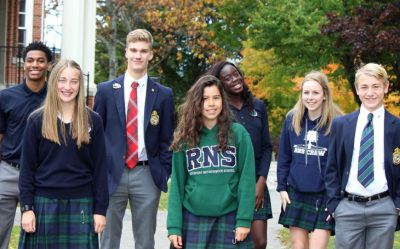
The school dates to 1874 when the brilliantly named Ezekiel Stone Wiggins founded Thompson's School, a coed day school. It teetered a bit in the early years, with changes in ownership, and direction, though in time found ultimately found both its academic and financial footings. A long-standing association with Netherwood, a school for girls founded in 1894, resulted in an amalgamation between the two in 1984. The school remains true to a tradition of academic excellence, and the campus is rich with reminders of its long history. The school has also has benefited from robust development, the product of a number of capital campaigns over recent decades. Between the long tradition and extensive recent development, there's frankly a lot here to love. Notably among the school's alumni is John Peters Humphrey, primary author of the Universal Declaration of Human Rights.
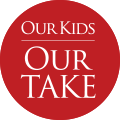

Gallery showcasing specific locations and facilities found at Rothesay Netherwood School.








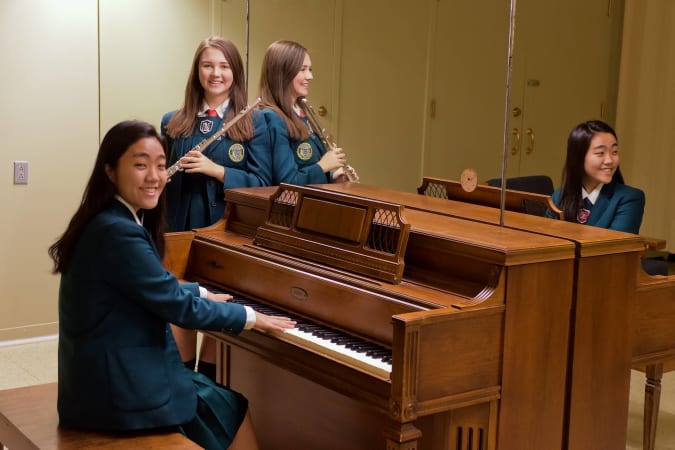





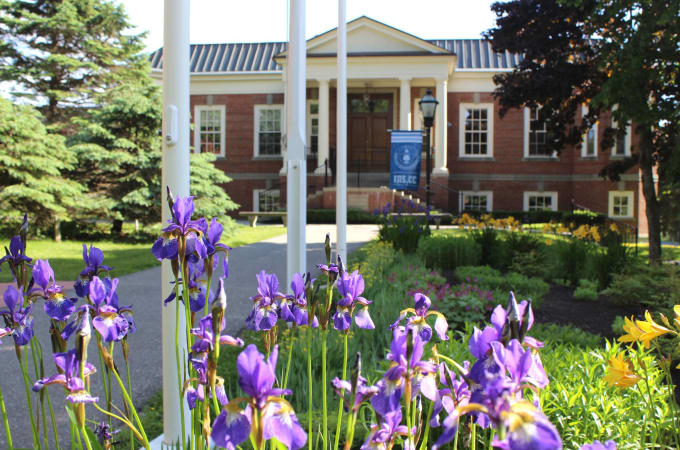





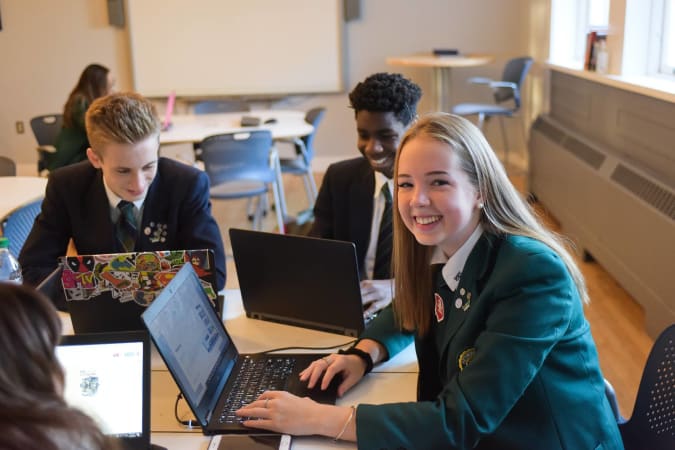



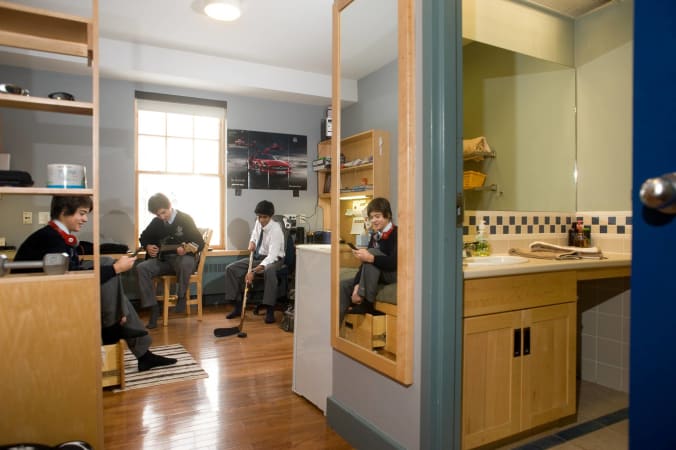
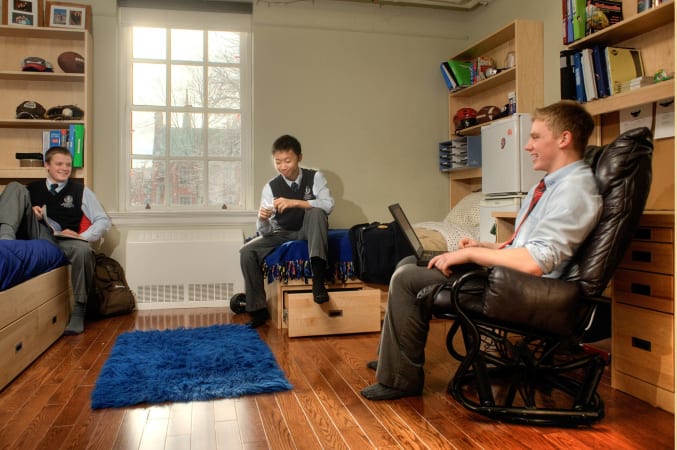
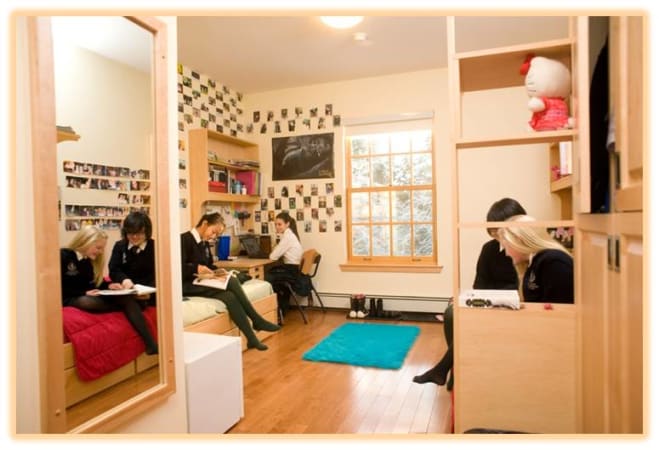










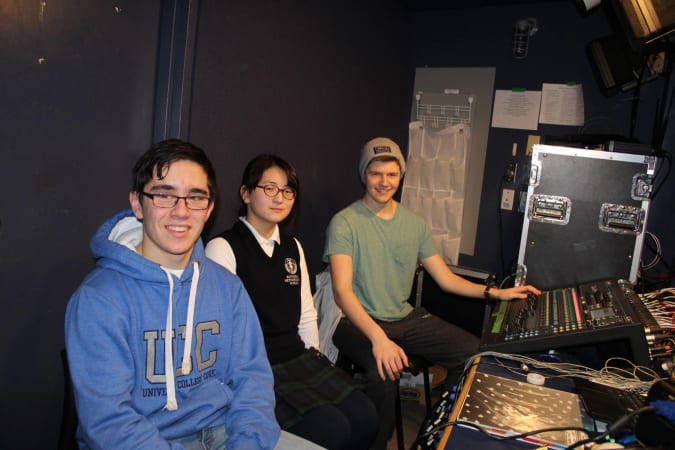




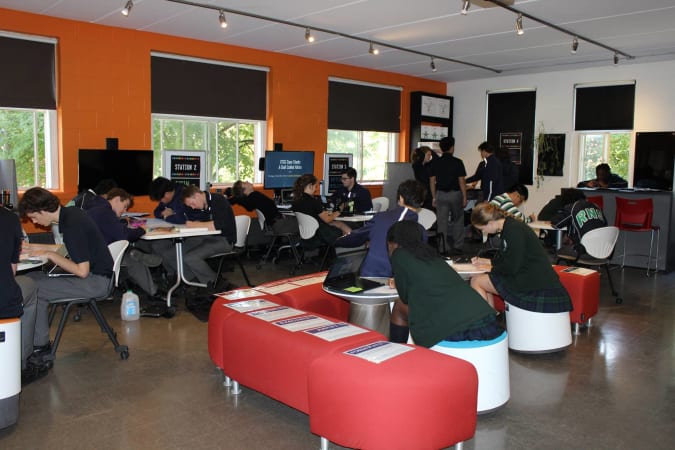





Central to your child's school experience is the underlying curriculum taught in the classroom. "Curriculum" refers to both what is taught and how it's taught. When considering the different curricula outlined in the next few pages, keep in mind that few schools fall neatly into one category or another. Most schools' curricula comprise a blend of best practices drawn from multiple curriculum types. Having said that, most schools do have a general overall curriculum type. These are identified for each school on OurKids.net.
Primary Curriculum: Liberal ArtsSuch an approach to curriculum shares with traditional programs their emphasis on core knowledge-acquisition, but tends to borrow more best practices from the progressive approach. The goal isn't to prepare students for vocational life, but rather to encourage an appreciation of the benefits of education itself, including academic and personal development. There is an emphasis on knowledge acquisition as well as theoretical and academic learning, but the real focus is on cultivating the intellect.
| Focus |
|---|
| Academic |
| Flexible pacing style | offered |
|---|---|
| Subject-streaming (tracking) | |
| Multi-age classrooms as standard | |
| Ability-grouping (in-class) as common | |
| Frequent use of cyber-learning (at-their-own-pace) | |
| Regular guided independent study opportunities | |
| Differentiated assessment |
| Subject type | offered |
|---|---|
| Learning strategy and study counselling; habit formation | |
| Extra support and minor accommodations for children experiencing subclinical difficulties |
| Subject type | offered |
|---|---|
| Accommodations | |
| Modifications | |
| Extra support |
| Special needs | Accomodations
Formal adjustments are made to the delivery of lessons to help mitigate the learning difficulty or exceptionality. The underlying content and expectations remain unchanged with accommodations, however. (Example: allowing a student to write tests in a quieter room). | Modifications The underlying content and expectations are modified and/or simplified for the sake of the student. (Examples: allowing student to use a calculator on a test when other students can’t; allowing students to bring word-banks or “cheat sheets” into certain tests, etc) | Remediation Research-based therapeutic measures that target and ameliorate the underlying weakness. |
|---|---|---|---|
| Learning disabilities | |||
| ADHD (moderate to severe) | |||
| Dyslexia (Language-Based Learning Disability) | |||
| Auditory Processing Disorder (APD) | |||
| Dyscalculia | |||
| Dysgraphia | |||
| Language Processing Disorder | |||
| Nonverbal Learning Disorders (NLD) | |||
| Visual Perceptual/Visual Motor Deficit | |||
| Developmental | |||
| Autism | |||
| Asperger's Syndrome | |||
| Down syndrome | |||
| Intellectual disability | |||
| Behavioral and Emotional | |||
| Troubled behaviour / troubled teens | |||
| Clinical Depression | |||
| Suicidal thoughts | |||
| Drug and alcohol abuse | |||
| Oppositional Defiant Disorder (ODD) | |||
| Physical | |||
| Dyspraxia (Developmental Coordination Disorder) | |||
| Blindness | |||
| Deafness | |||
| Cystic Fibrosis | |||
| Multiple physical |
| Program | offered |
|---|---|
| Full-time gifted program (parallel to rest of school) | |
| Part-time gifted program (pull-out; parallel to rest of class) |
Curriculum delivery: Enrichment (The main focus is on enrichment. This means that while students may work at a marginally quicker pace than public school peers, the primary aim is to study subject in broader and deeper ways.)
| Program | offered |
|---|---|
| Custom subject enrichment (special arrangement) | |
| Custom curriculum compacting (special arrangement) | |
| Guided independent study (custom gifted arrangement) | |
| Cyber-learning opportunities (custom gifted arrangement) | |
| Formalized peer coaching opportunities (specifically for gifted learners to coach others) | |
| Custom subject acceleration (special arrangement) | |
| Career exploration (custom gifted arrangement) | |
| Project-based learning (custom gifted arrangement) | |
| Mentorships (custom gifted arrangement) |
In grade Gr. 12, RNS students perform an average of 2 hours of homework per night.
| 6 | 7 | 8 | 9 | 10 | 11 | 12 | |
|---|---|---|---|---|---|---|---|
| RNS | 30 mins | 45 mins | 60 mins | 90 mins | 90 mins | 120 mins | 120 mins |
| Site Average | 39 mins | 51 mins | 52 mins | 71 mins | 75 mins | 104 mins | 112 mins |
| Sports Offered | Competitive | Recreational |
|---|---|---|
| Badminton | ||
| Basketball | ||
| Field Hockey | ||
| Golf | ||
| Ice Hockey | ||
| Mountain biking | ||
| Rowing | ||
| Rugby | ||
| Running | ||
| Snowboarding | ||
| Soccer | ||
| Tennis | ||
| Track & Field | ||
| Volleyball | ||
| Canoeing/Kayaking | ||
| Cross-country skiing | ||
| Downhill skiing | ||
| Ice Skating | ||
| Martial Arts | ||
| Softball | ||
| Squash |
| Clubs Offered |
|---|
| Habitat for Humanity |
| Jazz Ensemble |
| Musical theatre/Opera |
| Outdoor Club |
| Outdoor Education |
| Paintball |
| Photography |
| Robotics club |
| Round Square |
| Student Council |
| Yearbook |
| Yoga |
| Art Club |
| Audiovisual Club |
| Band |
| Choir |
| Community Service |
| Debate Club |
| Drama Club |
| Environmental Club |
| Grade | 6 | 7 | 8 | 9 | 10 | 11 | 12 |
|---|---|---|---|---|---|---|---|
| Boarding | CAN $61,910 | CAN $62,630 | |||||
This information is not currently available.
| Grades | Gender | Living Arrangement | Enrollment |
|---|---|---|---|
| Gr. 6 to Gr. 12 | Coed | Day School | 145 |
| Gr. 6 to Gr. 12 | Coed | Boarding School | 145 |
| Total enrollment | 290 |
| Average enrollment per grade | 41 |
| Average class size | 14 to 16 |
| Gender | Coed |
| Grades | Gr. 6 to Gr. 12 |
| Boarding offered | Gr. 6 to Gr. 12 |
| % in boarding (total enrollment) | 50% |
| % of foreign students | 20% |
| # of nationalities attending school | 21 |
| 6 | 7 | 8 | 9 | 10 | 11 | 12 | |
|---|---|---|---|---|---|---|---|
| Class Size | 17 | 17 | 15 | 16 | 16 | 16 | 16 |
| Services | Offered |
|---|---|
| Career planning | |
| Internships | |
| Mentorship Program | |
| University counseling |
| Key Numbers | |
|---|---|
| Average graduating class size | 60 |
| Alumnus | Grad Year | Accomplishment |
|---|---|---|
| Richard Hatfield | 1948 | Premier of New Brunswick |
| John Peters Humphrey | 1922 | principal author of the Universal Declaration of Human Rights |
| James Irving | 1946 | |
| Arthur Irving | 1948 | |
| John Irving | 1950 | |
| Gordon Fairweather | 1940 | |
| Derek Oland | 1957 |
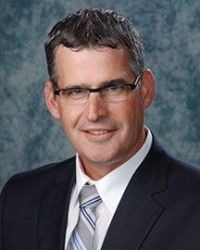
We are a small school where high expectations of students and faculty are realized in a caring environment. We have built a strong community where respect, courage and responsibility form the foundation of daily life. As a boarding and day school where our faculty lives on campus, the level of commitment is high, and the interaction between our students and our faculty is exemplary.